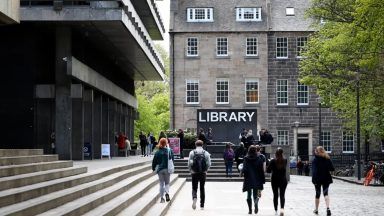The ‘perfect storm’ of financial pressures facing Scotland’s culture sector “has not abated” over the last year, according to a new parliamentary report.
The report from the Scottish Parliament’s Constitution, Europe, External Affairs and Culture Committee follows pre-budget scrutiny of the Scottish Government culture portfolio spend ahead of the Scottish Budget for 2024-25, which is expected to be announced to Parliament in December.
Last year, the Committee found that the existing budgetary challenges facing the culture sector had become “much more acute”, contributed to by a “perfect storm” of long-term budget pressures, reduced income generation, and increased operating costs.
Twelve months on from that initial warning, the Committee have concluded that “this ‘perfect storm’ has not abated, with external and public funding pressures maintaining, and the culture sector remaining under significant financial strain and the risks to its future becoming more severe.”
At the same time, the Committee recognised that the Scottish Government continues to face a “challenging fiscal environment”.
A key finding by the Committee was that there was an “urgent need” for the Scottish Government to restore the confidence of the culture sector as it continues to face significant budgetary pressures.
It therefore noted the recent commitment by the First Minister in response, to increase the Scottish Government’s investment in arts and culture by £100m over the next five years.
 iStock
iStockThe Committee is now awaiting the detail of this funding commitment, with further information expected to be provided in the upcoming budget.
The Committee also found that both the initial cut to Creative Scotland’s grant-in-aid for 2023-24 in the draft Budget and, after it had been reversed, the reinstatement of that cut in the Autumn Budget Revision had “damaged an already fragile confidence” within the culture sector.
While it acknowledged that the organisations receiving regular funding from Creative Scotland would not receive a budget reduction during 2023-24 as a result of this cut, with some of Creative Scotland’s National Lottery reserves having been allocated to offset it, it sought further clarity on the extent to which the use of these reserves will have impacted the level of funding available to manage the transition to Creative Scotland’s new Multi-Year Funding Programme.
The report also considered what progress the Scottish Government had made in the last 12 months on taking forward innovative funding solutions in response to the challenges facing the culture sector, including government commitments on multi-year funding and cross-portfolio funding models.
The Committee highlighted that “very limited progress” had been made and called for “much greater urgency and a clear pathway to make tangible progress” on implementing these funding models.
Commenting on the report, Committee Convener Clare Adamson said: “The First Minister’s recent commitment to increase the Scottish Government’s investment in arts and culture by £100m over the next five years comes as the Committee has been hearing from stakeholders across the culture sector of the significant financial challenges it continues to face.
“We heard that the ‘perfect storm’ facing the operating environment of the sector has not abated over the last 12 months, with external and public funding pressures maintaining; and that there has been very limited progress made on implementing innovative funding solutions to support the sector.
“Given this context, there was an urgent need for the Scottish Government to restore the confidence of Scotland’s culture sector.
“We look forward to receiving further details of the First Minister’s commitment to provide additional funding for arts and culture.”
A Scottish Government spokesperson said: “The Scottish Government investment in arts and culture will increase, so that in five years our investment will be £100m higher than it is now.
“However due to the cost crisis we have had to make difficult choices to live within our largely fixed budgets. Our ability to respond to the cost crisis is limited by the inactivity of the UK Government and the financial restrictions of devolution.
“We will continue to do everything within our powers and resources to help those in the culture sector most affected by current economic challenges.”
Follow STV News on WhatsApp
Scan the QR code on your mobile device for all the latest news from around the country


 iStock
iStock

























